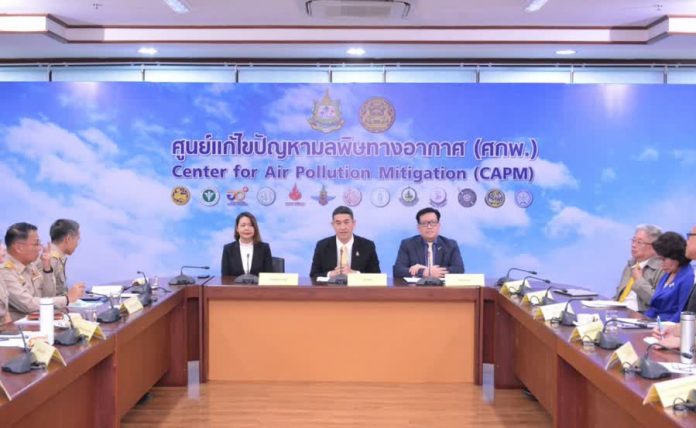BANGKOK (NNT) – With the haze, caused by PM 2.5, expected to return to Bangkok this week, measures have been proposed to the Cabinet aimed at curbing air pollution, mostly by preventing unnecessary burning and limiting vehicle emissions.
The Pollution Control Department (PCD) Director General and Center for Air Pollution Mitigation (CAPM) Chief Athapol Charoenshunsa revealed that the National Environment Board has approved 12 interim measures to reduce the accumulation of airborne PM 2.5, as well as reducing the number of burning hotspots by 20 percent.
A communications subcommittee has been established, under the National Environment Board, to report accurate air pollution information and mitigation efforts to the general public under the One Voice, One Team approach. The communications subcommittee will be communicating with the general public through the CAPM.
The National Environment Board’s PM 2.5 measures will be proposed for the Cabinet’s approval tomorrow. The board is expecting an approval in order to execute these measures, ahead of the expected haze season next month.
The CAPM Spokesman Siwatt Pongpiajun revealed that the accumulation of PM2.5 in the Greater Bangkok Area is expected to reduce tomorrow, thanks to better air circulation and rising air due to the influence of Storm Vamco, which has weakened into a low pressure system.
The center does expect the PM 2.5 level to rise again on 18-19 November, especially in the southwestern parts of Bangkok, Samut Prakan, and Nonthaburi.
The PM 2.5 levels in the central and western regions are still within the standard limit.
Hotspots have been detected in the northeastern provinces of Bueng Kan, Nong Khai, Udon Thani, and Koon Kaen, leading to the accumulation of airborne particles. Forecast rain tomorrow will help reduce the air pollution.
Mr. Siwatt said weather aspects are difficult to control, making it necessary for human activities which emit air pollution to be restricted. This has led to the introduction of measures such as an open-air burning ban, the regulation for cargo trucks to enter city areas only on odd or even days, and the promotion of work-from-home arrangements for employees, to reduce the use of personal cars.


